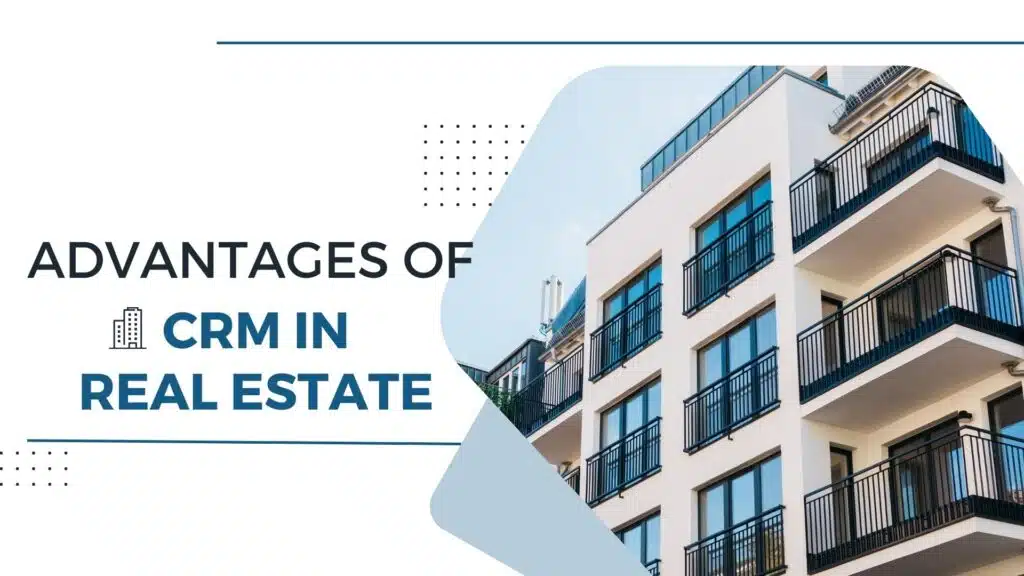
There are untold advantages to utilizing a CRM solution in real estate, which is why every day more and more companies from other sectors of the market invest their money into this amazing technology. A customer relationship management (CRM) tool looks after a lot of the day to day running and administrative task load so your team can spend more time focussing on what they do best — talking directly with their clients. From nurturing new leads to driving your marketing efforts, real estate CRM software does it all.
A CRM system will help you get a grip on your business routines, workflows and real estate analytics so that everything is in order. We will discuss the 8 features of CRM in real estate that can make an impact and help you streamline your agency.
Effective lead management CRM in Real Estate
Centralizing all of your lead data in the same place is one of the most significant advantages that CRM offers to real estate. That means no lead data slips through the cracks, and your team has more opportunities to follow up with these critical deals. The software will collect leads from different platforms in one place.
These tools can integrate leads from multiple sources in real estate such as:
- Your website
- Social media
- Email campaigns
- In-person leads
- And more
Most CRM systems will also include task management tools allowing you to assign and follow up on tasks, e.g. calls or emails in nurturing leads through the sales funnel. This way you & your team can always stay on top of following up with leads and setting appointments that will increase new clients coming into the agency.
Speeds up the deal-closing process
Organize and segment your leads – so you can spend most of your time prioritizing only the opportunities that offer maximum rewards, this is another benefit of CRM in real estate. Task Manager A CRM for estate agencies also provides a task manager that allows you to assign and keep track of the tasks when closing deals. This way, you & your team stay ahead of important tasks like conducting property showings, preparing a contract or negotiating deadlines. The more efficiently you are able to manage these activities, the quicker can become your closing process.
CRM software features communication tools aimed at enhancing rapid and effective correspondent with leads, clients or any other involved stakeholder in the deal process. Email templates, SMS integration and chatbots allow you to answer quickly while providing the information needed or addressing concerns immediately. The time to close a deal is significantly reduced with clear and consistent communication.
Maintains data accuracy
The other thing that CRMs can provide is data validation rules so that you never have to worry if the information entered is inaccurate or incomplete. This helps to avoid storing invalid or incomplete data and hence keeps the existence of valid object references always true. CRM systems also commonly provide some standardisation functions enabling you to define and enforce standard formats for data, certain types of phone numbers or addresses (e.g., how a specific entry should look) especially property information.
It should also be mentioned that one of the benefits of CRM in real estate is its ability to additionally automate data input by communication with various lead sources, websites and so. This helps to eliminate manual data accuracy and reduce human error. It takes no time to capture leads and other important data automatically into the CRM, allowing you speedy updates in real-time crucial to making information accurate.
A CRM system can detect duplicate or redundant data and remove them as part of its housekeeping practices. It can automatically mark/merge the same records on the basis of different contact IDs, it fixes to avoid confusion and wrong reports due to multiple entries for a single contact or property. It scheduled data cleansing and deduplication jobs that keep the CRM records clean daily.
Improves lead follow-ups
After all these lead qualifications, the CRM will naturally start with nurturing. It allows you to create automated Email or SMS sequences that are operated on predefined conditions/time frames. This makes sure that your leads are being nurtured and engaged in time which increases the odds of conversion.
You can keep your leads organized and easily controlled with a CRM. You can easily assign reminders and notifications to follow-up tasks, appointments or major milestones in the lead journey. This way you are organized and no opportunity for a follow-up would be left unattended.
A CRM allows you to customize the way your messages reach leads. For each lead, you can store relevant information such as their preferences or property requirements and all interaction history. This gives you data to follow up with them in a way that directly addresses their wants and needs. Talks with, but guarantees a high engagement level which means a high probability of conversion.
Supports drip campaign management
A real estate CRM enables you to build and automate drip campaigns, which are automated messages that rolls out over time. Each message is automated based on a predetermined schedule set by you, the user. This does away with the need for manual follow-ups and makes sure leads are contacted as soon as possible in a consistent manner.
It also comes with a space in which you can organize your drip campaign content. That means you can build your email templates, landing page design or other collateral that would be stored in the CRM itself. Centralizing these means your message and content will remain consistent, as well easily updated or repurposed.
Standardises workflows
CRM for estate agents will help you effectively calibrate time-consuming tasks and workflows, auto-piloting them at your request. It allows you to create automated workflows that are triggered by specific events or conditions. Some examples are automatically assigning leads, setting up follow-up reminders or even creating tasks depending on lead actions and parameter time periods. Automation not only enforces whatever workflows you establish but also eliminates the chance of making a mistake or missing articles manually.
You can also create and assign tasks to team members using the task management features of this software. Within each of those stages, you can create standardized task templates – for property visits or showings and contract generation or closing activities. When tasks are standardized and can be properly attributed, your workflow won’t lose a beat with all steps being held accountable every single time.
Track the whole workflow
Another aspect of workflow design is represented in the visual deal pipeline, our fourth advantage for CRM real estate purposes. This includes these stages – lead gen and qualification, property showing (or viewing), offer negotiation, contract preparation and closing each having its own category with similar transactions organised under it so you always know where everything stands during your process. Every deal is tracked and moved through these stages, which allows you to quickly see the progress of every transaction and easily identify bottlenecks or delays.
It will let you set up and follow activities or tasks linked to that deal or workflow stage within the CRM. These can be allocated to people or teams, and you can keep track of how they are progressing in terms of status, due dates and completion. This gives you a perspective on the activities that need to be done in each phase and makes sure nothing slips.
FAQs
A real estate CRM is a customer relationship management (CRM) system that can influence and manage interactions between you, your clients or potential customers. Customer relationship management is soon taking over the real estate sector and we can see that CRM tools are proving themselves to be vital components in the daily work of a real estate agent as well as key factors in building a successful brokerage.
Real estate agents are always on the go and need tools that can work as hard they do. Using CRM allows you to communicate with your coworkers more efficiently and makes other parts of the conversation faster on a daily basis.






